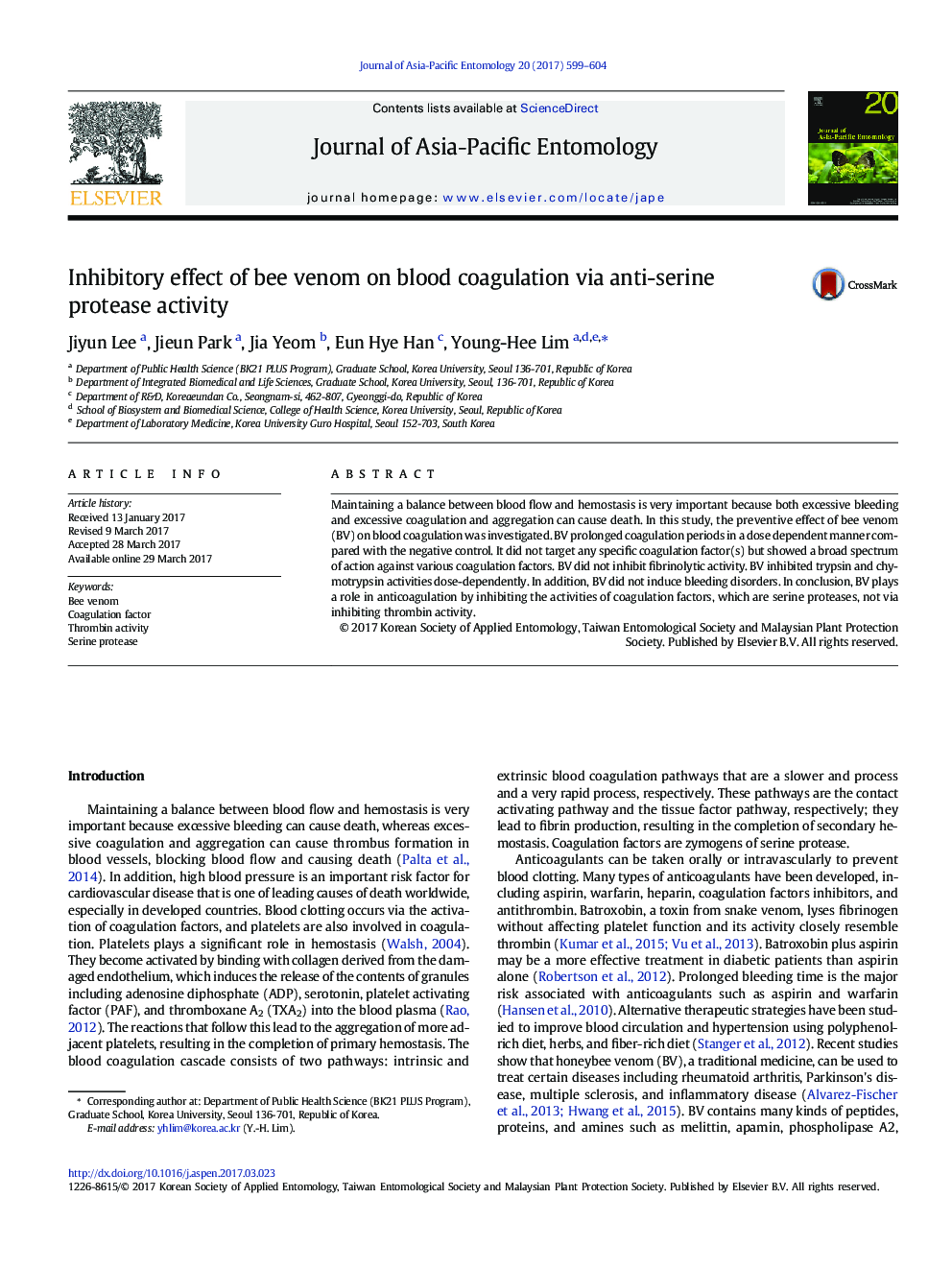| Article ID | Journal | Published Year | Pages | File Type |
|---|---|---|---|---|
| 5763581 | Journal of Asia-Pacific Entomology | 2017 | 6 Pages |
â¢Bee venom (BV) inhibited trypsin and chymotrypsin activities.â¢BV engaged in anticoagulation by inhibiting the activities of coagulation factors.â¢BV showed a broad spectrum of action against various coagulation factors.â¢BV did not inhibit fibrinolytic activity.â¢BV did not induce bleeding disorders or inappropriate blood clot formation.
Maintaining a balance between blood flow and hemostasis is very important because both excessive bleeding and excessive coagulation and aggregation can cause death. In this study, the preventive effect of bee venom (BV) on blood coagulation was investigated. BV prolonged coagulation periods in a dose dependent manner compared with the negative control. It did not target any specific coagulation factor(s) but showed a broad spectrum of action against various coagulation factors. BV did not inhibit fibrinolytic activity. BV inhibited trypsin and chymotrypsin activities dose-dependently. In addition, BV did not induce bleeding disorders. In conclusion, BV plays a role in anticoagulation by inhibiting the activities of coagulation factors, which are serine proteases, not via inhibiting thrombin activity.
Graphical abstractDownload high-res image (182KB)Download full-size image
